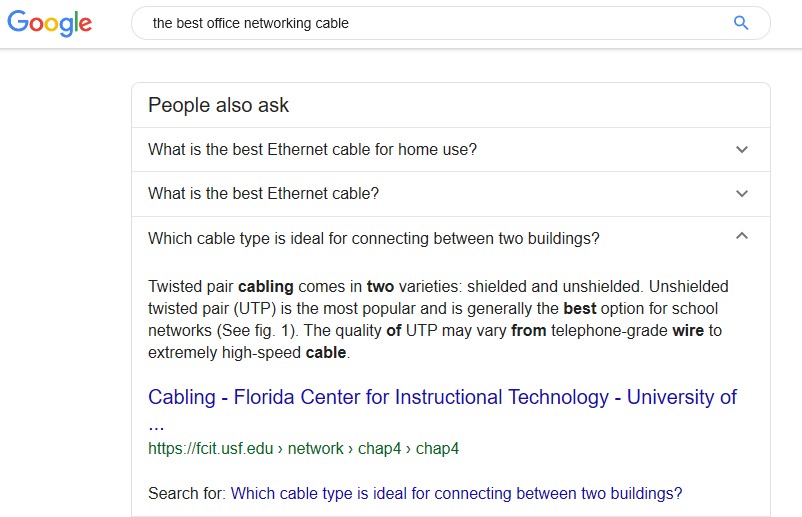
When you’re first building your tech business website, that blank canvas of possibilities can be exciting, but after you’ve done a home page and contact page, where do you go from there?
Should all your services be on one page or should they each have their own? Is there some “magic” formula to the site structure that will help you get better SEO rankings?
While a website is supposed to be a unique reflection of your company and can come in all shapes and sizes, there are a few best practices when it comes to the pages you include to help you show up in local search rankings and be an effective online storefront for your visitors.
Choosing the Most Important Website Pages
Your website is one of the most important parts of your tech business marketing engine. It’s a main foundation from which other types of marketing can be launched – reviews, blogs, videos, etc.
There’s a balance for most small businesses which on one hand is the need to attract and inform customers and on the other, to use the right structure and SEO tactics that will give them free advertising in Google’s search rankings.
There’s no reason why you can’t have both if you pay attention to your site page choice and how those pages are optimized on the back end.
70% to 80% of consumers research a business online before visiting in person or purchasing.
Many people would say that your online storefront (aka your website) is just as, or even more, important than your physical storefront. That’s because we’re an online culture these days and statistically the first interaction people have with your tech business is going to be on your website.
Once you get past the design and branding of your site, you’re there with a blank canvas that’s just waiting to be filled with pages. So, which are the most important to add first, and which should you add on as you have time?
We’ll go through 4 categories of pages:
- Must Haves
- Nice-to-Haves
- Technical Stuff
- Ninja Tips
This should help give you a roadmap as you’re designing a new site or adding onto your current site, so you can make your website both an effective lead converter and one that shows up in local search rankings for IT services.
Must Have Web Pages
The “must haves” are the pages you should start with first as your key site foundation. They’re pages that people will typically go looking for and will think it’s strange if they’re missing from your site.
Your must haves are also webpages that help build the cornerstone content for your SEO and local SEO by including your key business objectives, keywords, and basics like your business name, address, phone number.
Home Page
The main page that people land on when going to www.yoursite.com is your home page. It’s typically the very first page most people will create when building a website.
It’s like the main lobby at a hotel, designed to greet people, give them some information about what you do, and give them an opportunity to explore further by directing them to other areas.
For Visitors: Include a brief intro about your company that helps them get to know you. Don’t try to explain in detail every service or product you provide here, that’s what individual service/product pages are for. Give a synopsis and highlight what makes you different.
For SEO: You’ll want to use a handful of your main keywords on this page (but don’t make it spammy) and use those to link out to your other pages, which provides a good interlinking structure. For example, link the words “managed IT services” to your managed IT services page.
Contact Page
Even if you include your contact details at the bottom of every page on your site, you still need a standalone contact page. People will go looking for this, typically at the top far right of your menu or in the footer, so it’s best to have it available both places.
Don’t underestimate the ability to make your contact form engaging, while it is meant to be pretty straight-forward, you can have some fun with it using images or a unique design. Here are some unique contact page ideas.
For Visitors: Make it clean and to the point. Don’t make them have to work to contact you by form, phone, or email, otherwise they may move on. (44% of people leave a website if they can’t find contact information.)
For SEO: You want to ensure your name, address, and phone number are correct and that any local citations out there for your company match the info on this page.
About Us Page
Once on a website’s home page, 52% of people want to know more about you and are looking for “about/company” details. Your About Us page gives you the opportunity to inject a little personality onto your site and let your visitors know how you started, what your mission is, and why they want to work with your company in particular.
For Visitors: Include some personal information about your founders, how you started, etc. There are few things more boring than going to an About Us page and reading only generic promotional text and learning nothing about the people behind the company.
For SEO: You can use the opportunity to give a synopsis about your service offerings and add a few keyword optimized links to your other pages. Also be sure to include a few mentions of the cities/areas you serve to help your local SEO.
Services Pages
Another important group of “must have” pages are the ones describing your services (or products). While some businesses list them all on one page, if you want a better chance at showing up in the search rankings, it’s a good idea to have a separate page for each service so you can keyword optimize for that particular service.
Keywords and secondary keywords for “managed IT services” and “cloud hosting” are going to be different, so trying to stuff all your services keywords onto a single page is going to be less effective than being able to do them separately. You’ll get the attention of Google’s ranking algorithm when using like words together on a page.
For example, a page optimized for cloud backups might have a keyword structure like this:
- Primary Keyword: cloud backup services
- Secondary Keyword: backup and recovery
- Secondary Keyword: back up your computer
- Secondary Keyword: backing up to the cloud
Additionally, potential customers will get a better feel for what you have to offer if you use more than one paragraph on a combined service list page. That being said, it is perfectly okay to have one page that lists all your services, but then be sure to link each one to an individual service page with more detail
For Visitors: Start with a summary of the service, then go into more detail. Use bullet points to help highlight benefits or items included in a service and be sure to mention how you’re better than your competition and the value being offered to the customer.
For SEO: Take advantage of secondary keywords big time on services pages and also take the opportunity with a “more services” option to link out to other services using anchor text with that page’s keyword. (i.e. Link the text “VoIP Services to that VoIP service page.)
Nice-to-Have Web Pages
The pages that are “nice-to-have” aren’t absolutely critical, but they do make a nice addition to your site and can help you convert more sales.
Blog Pages
Blogs really hover right between “must-have” and “nice-to-have” because they are critical to your site SEO due to always feeding fresh content to your site and being a the major bedrock of any online business marketing strategy.

For Visitors: Use blogs to attract new customers and to give your existing ones another reason to work with you by highlighting topics that impact their lives and segue into your service offers.
For SEO: Blogs are a treasure trove of SEO power, allowing you to interlink to cornerstone content within your site (like your Services pages) and to optimize for longtail keywords (which account for nearly 70% of all searches).
Testimonials Page
It’s great to sprinkle customer quotes throughout all your site pages, but it’s also nice to have a page that lists all of them together, which makes it easier for visitors to read through them all at once.
94% of buyers read online reviews before making a purchase decision.
Nearly everyone is looking to read a review or testimonial before they decide between one business or another, so this page can help convert your online leads. You can find tips on using testimonials here.
For Visitors: Keep testimonials easy to read and include star ratings with star images, where appropriate.
For SEO: Keep the location in the testimonial signature (i.e. Bob Smith, Akron, OH), which will help you build more local authority in the search rankings.
Case Studies Page
Case studies offer a more in depth reference than a testimonial. Instead of just a quote or star rating, they let visitors know exactly what you did for another customer in detail, what services and technology was involved, and what the outcome was.
A case studies page can be especially helpful for B2B tech businesses that offer a range of technology services designed for multiple business use cases, like networking, cybersecurity services, or migration to virtual desktops.
For Visitors: In addition to the case study on your website, include a downloadable PDF that they can print out to show their decision maker when building a case for working with your company.
For SEO: Case studies give you an opportunity to mix your technology keywords and local keywords for local SEO juice, such as… “We assistance Sacred Heart Hospital in Akron, Ohio with wireless networking.”
Technical Pages
Depending upon the industries you work in and the regulatory compliance for data privacy, you may have additional pages explaining your data privacy policy and/or website use policy.
Additionally, some merchant account providers for companies offering any type of product (like refurbished computers or cell phones) require return policies and warranties to be linked on your website.
Some of the technical pages you may want to be aware of include:
- Privacy Policy
- Website Use Policy (also called: Terms & Conditions)
- Return Policy
- Shipping Policy
- Warranties
Ninja Tips for Your Webpages
If you’d like to catapult your website into the SEO stratosphere and help your chance of showing up ahead of the pack in local searches on IT services in your areas, there are a few Ninja tips below that you can use that will also add helpful pages to your website for visitors.
Industry Pages
Create pages for specific industries that you’d like to target, such as “IT services for accountants,” and discuss how your services can specifically benefit that industry. This can help you attract those niche clients and also help you come up for local searches that someone may be doing such as “accounting IT services near me.”
Local SEO Pages
Creating separate pages that highlight “IT services in Akron, OH” and “IT services in Columbus, OH” can help you with your local search rankings. These also can be used as landing pages for any pay-per-click advertising you’re doing based upon those same local keywords – improving relevancy, which typically helps lower bid costs.
Combining local and industry keywords on the pages above, is also a great tactic, such as “IT services for accountants in Akron, OH”
FAQ Page
A few years back Google added common questions and answers to their search results, which typically show up at the top of the page in the “People also ask” area. You can take advantage of their desire to help answer searcher queries by creating an FAQ page with a bunch of them.

The Q & A format of an FAQ page is perfect to help you take advantage of this tactic. An FAQ page is also very helpful to site visitors looking for some quick answers to both questions about your site and technology that you work with.
Have Fun Mindfully Building Your Pages
The great thing about a website is that it never has to be completely “finished,” it’s always evolving. You can continually add new pages as you like to both help your SEO rankings and attract new leads.
Are there other pages you think are “must have” or “nice-to-have”? Share your website tips in the comments.
Speak Your Mind